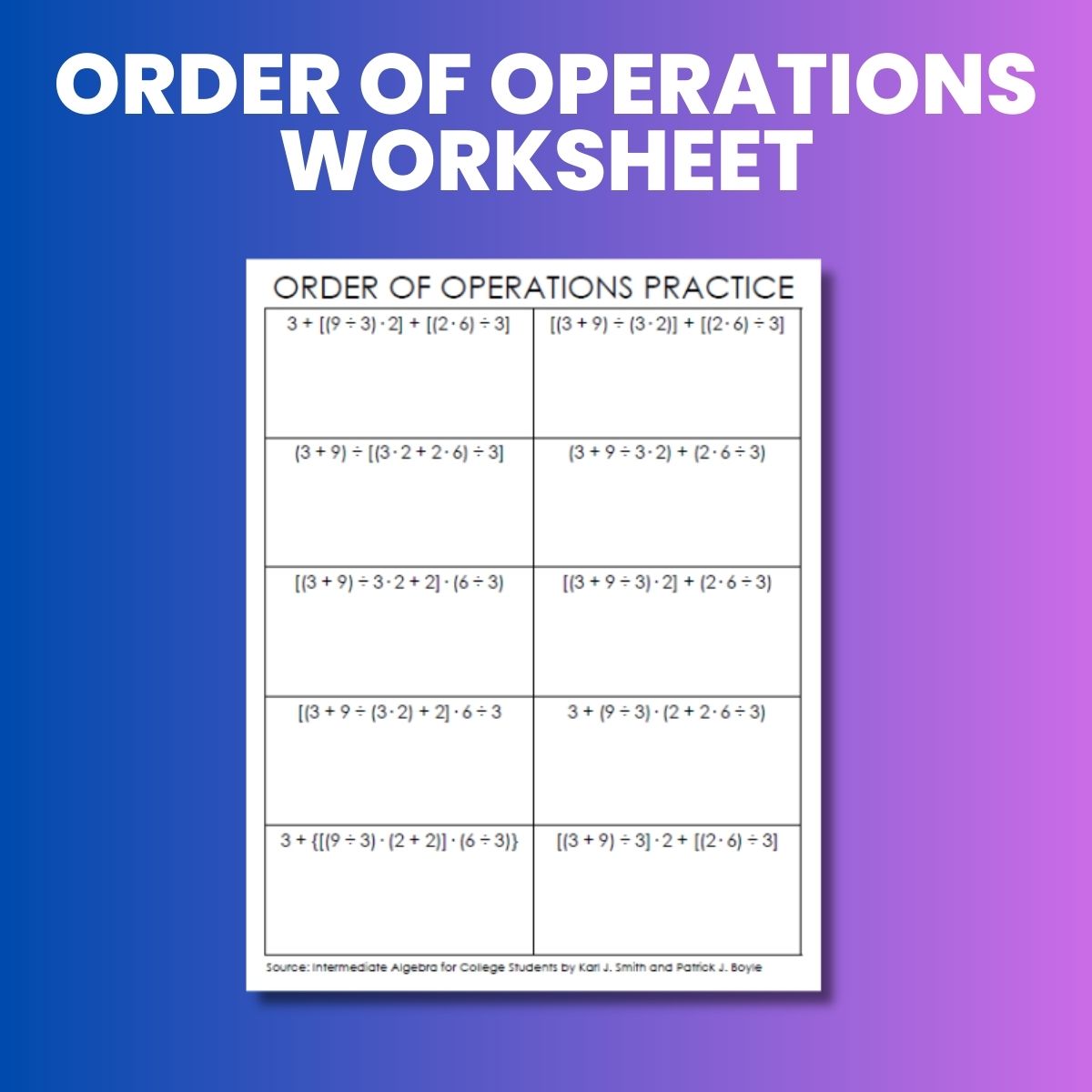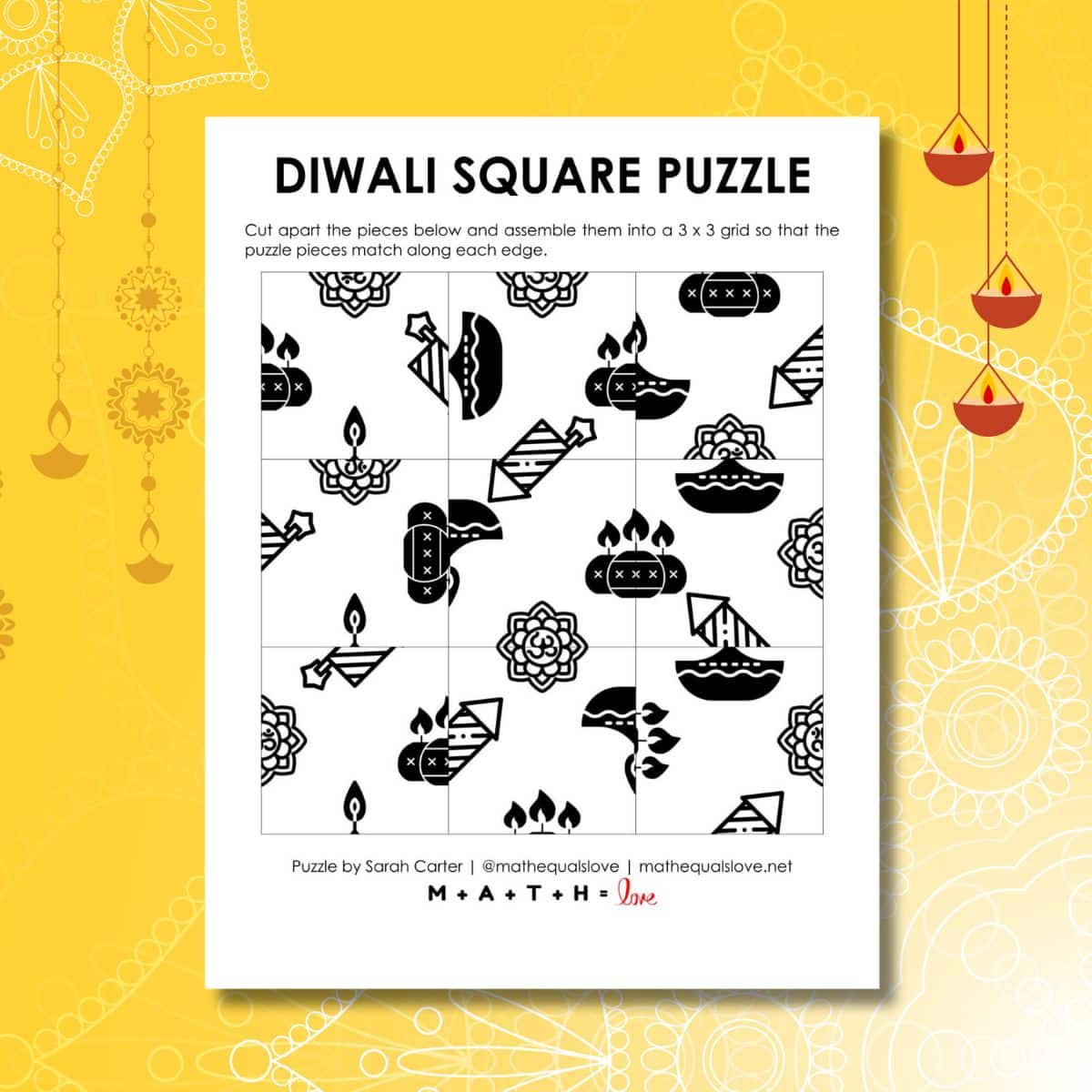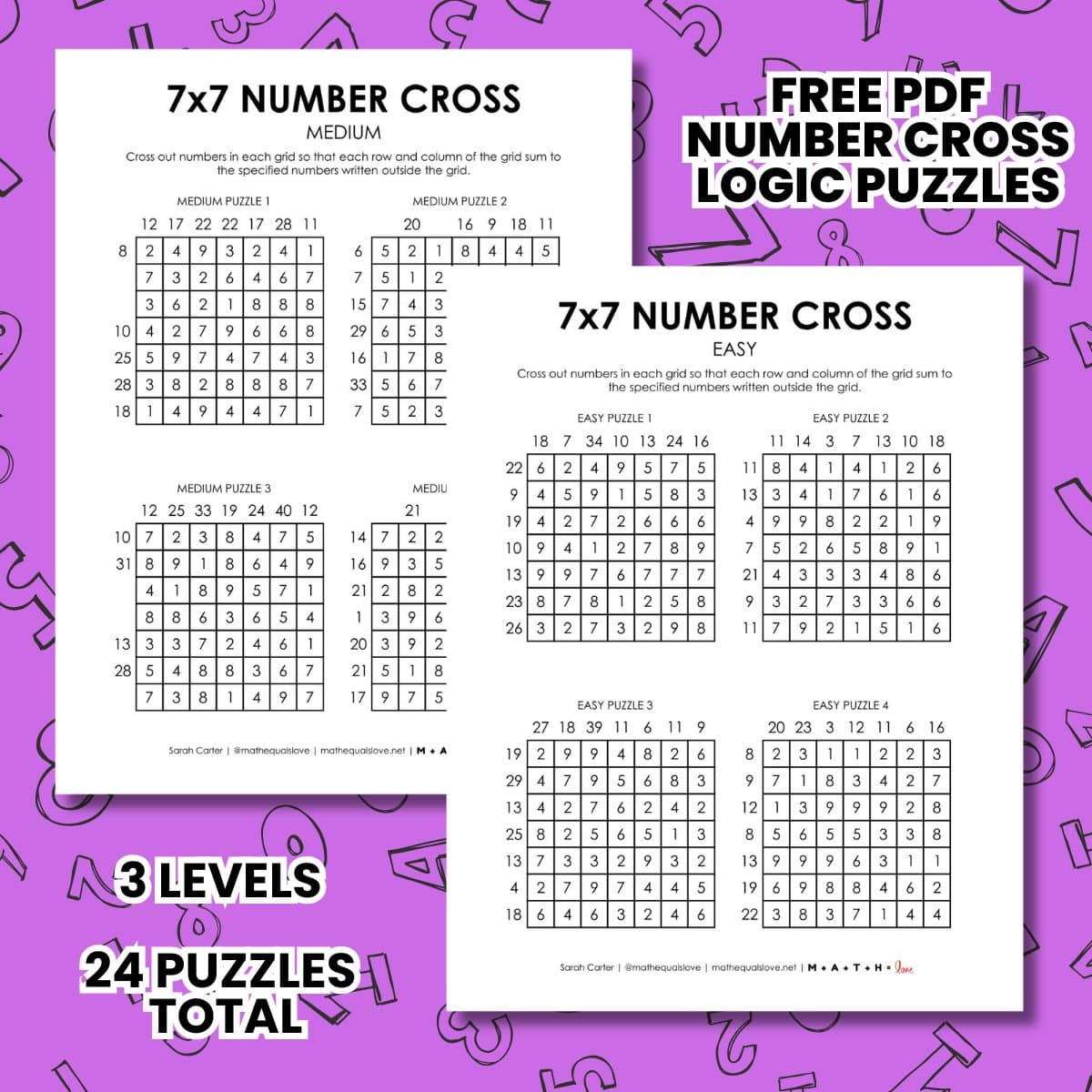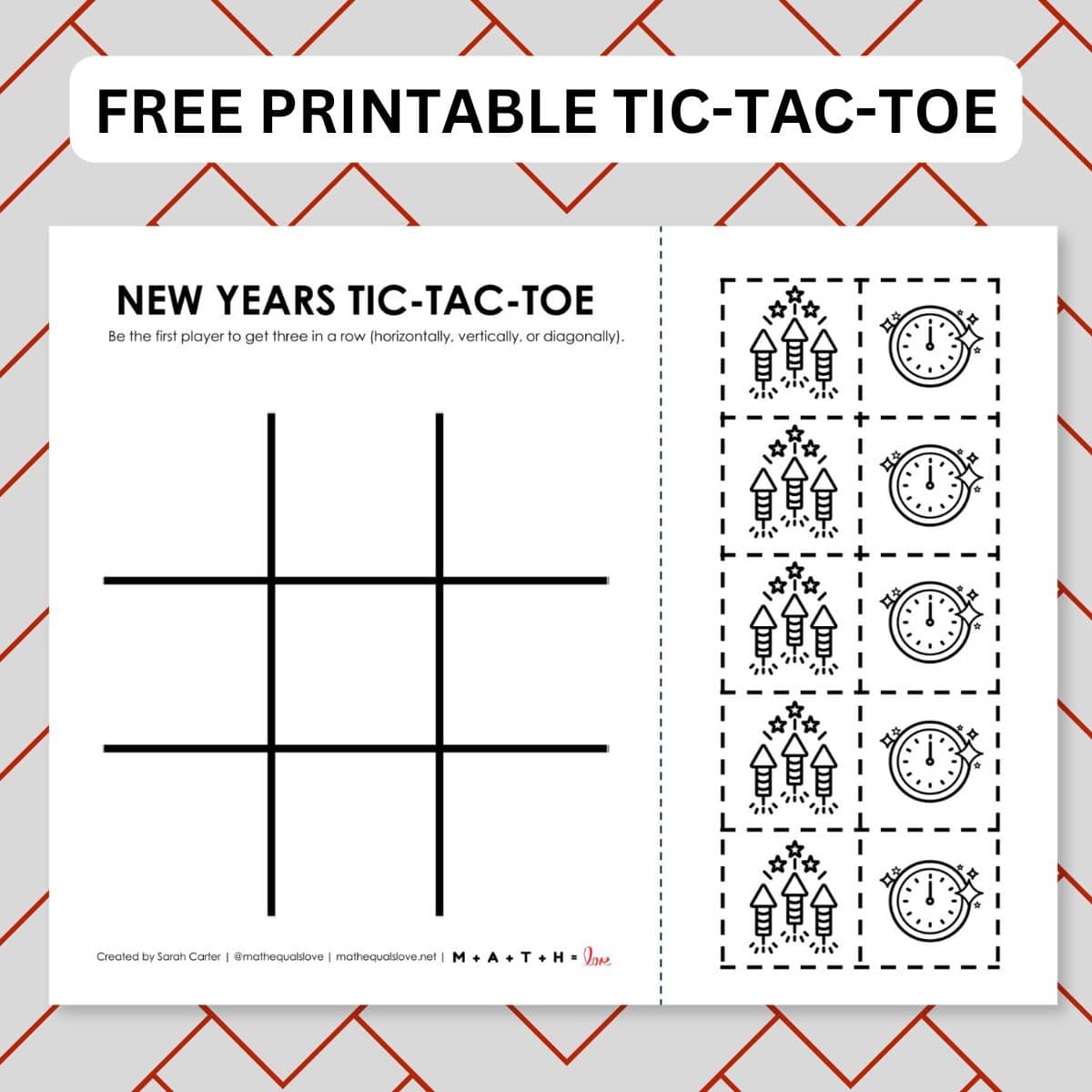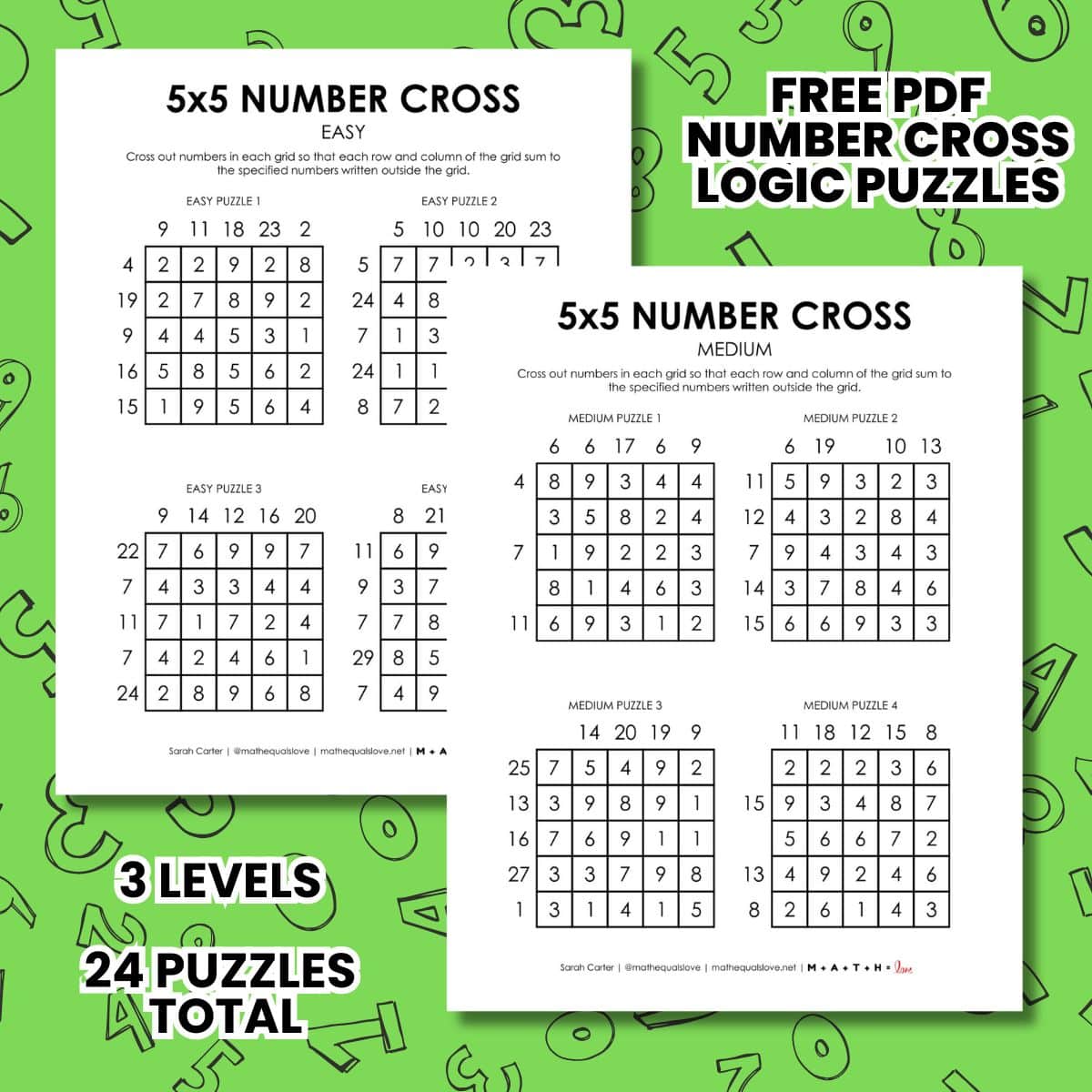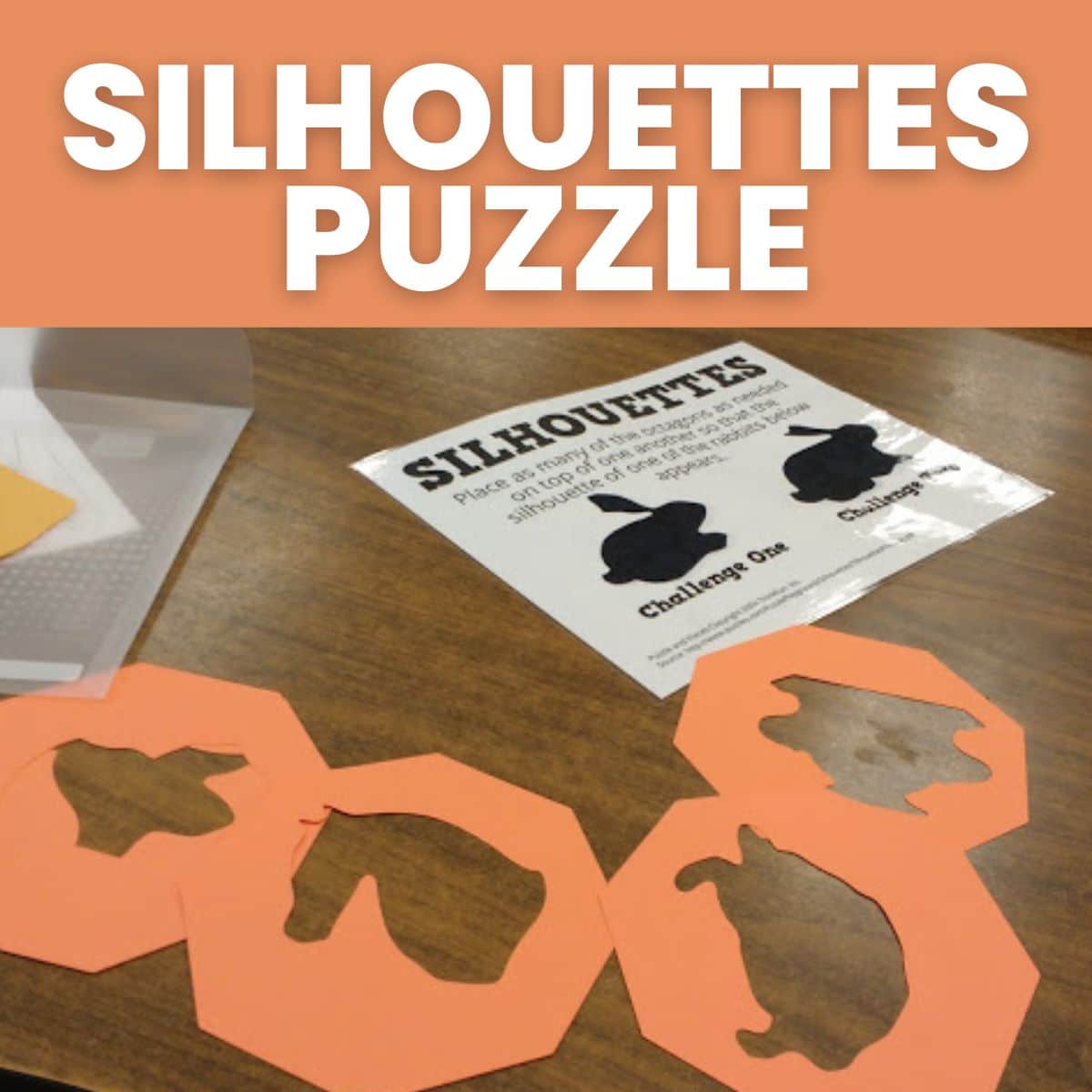Parenthetical Promise for Evaluating Expressions
This blog post contains Amazon affiliate links. As an Amazon Associate, I earn a small commission from qualifying purchases.
We kicked off our lesson on evaluating expressions with the parenthetical promise. Every year, I force my students to make the following promise to me: I, _, do hereby promise that I will always use parentheses whenever I substitute values into an algebraic expression. I make them sign the promise and date it.
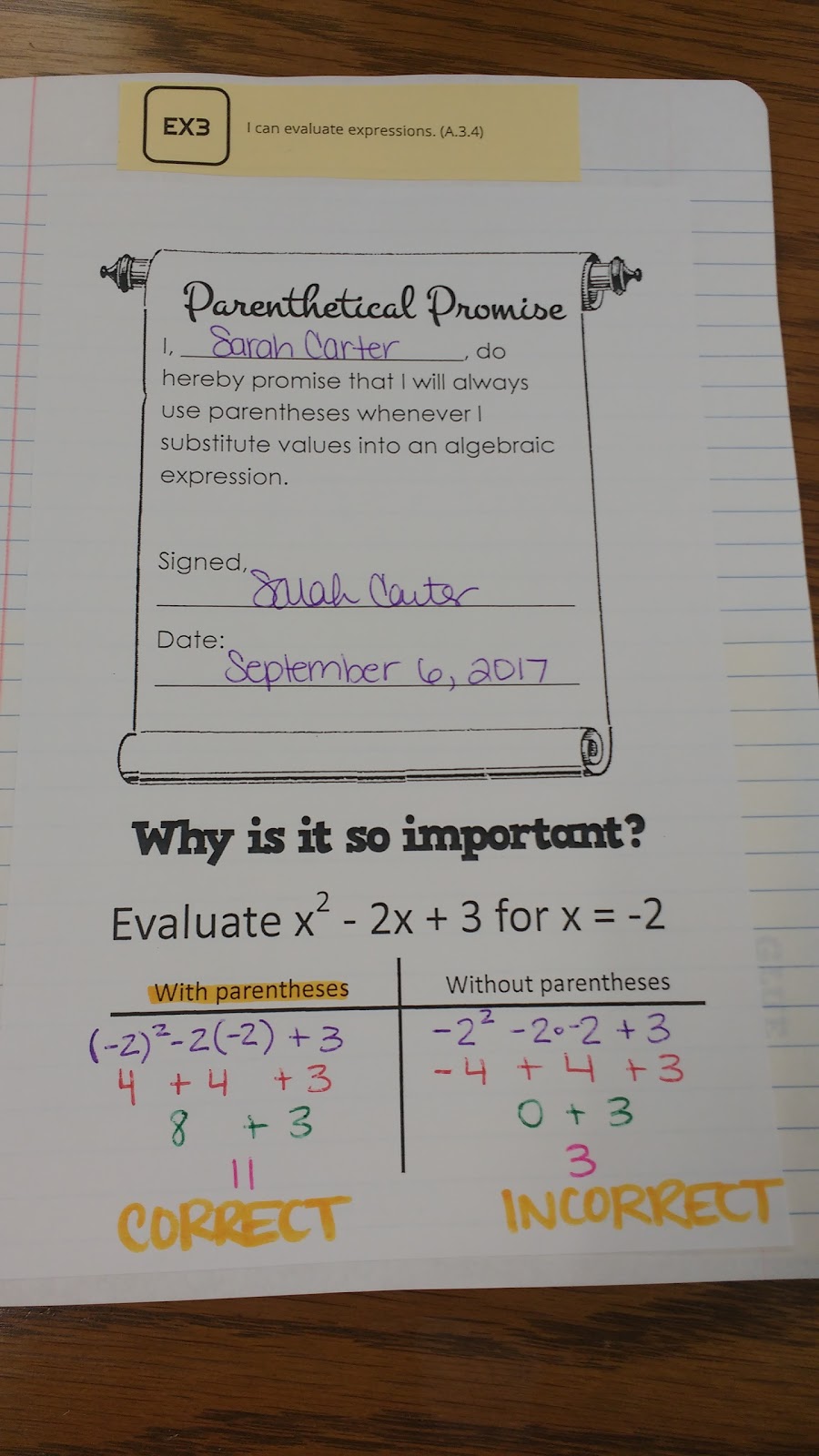
Every year, I seem to have a few who don’t want to play along. This year, I didn’t have any of those because I told them that the students who didn’t play along with the promise last year ended up failing the quiz. I think this year’s freshman class may still be scared of me…
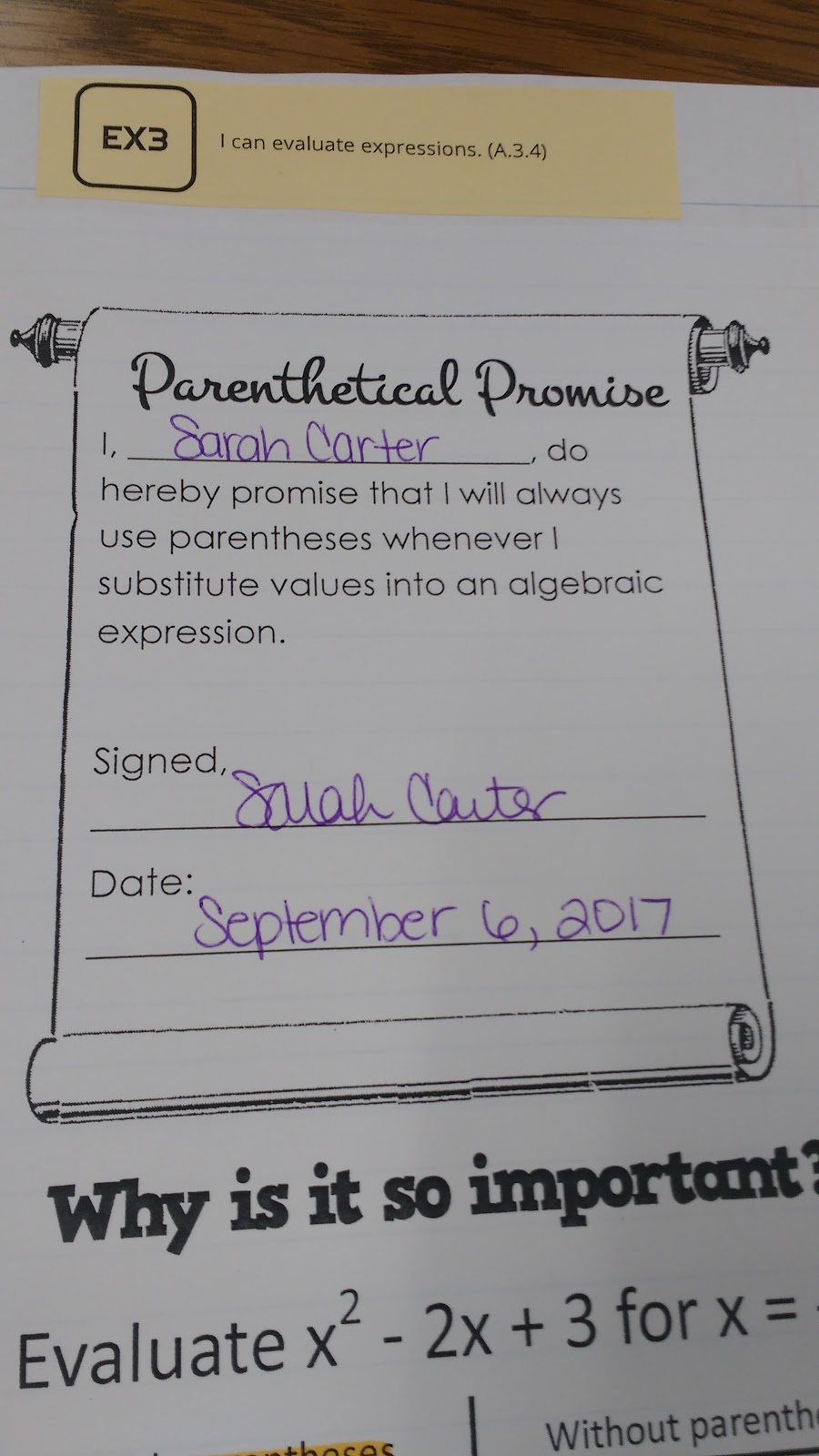
Though I’ve done this for multiple years now, I’m embarrassed to say that this is the first year that I’ve made a point of showing my students the importance of using parentheses when evaluating expressions. Can you believe that?!? In the past, I’ve just assumed that students would take my word that it was important. No wonder some students didn’t want to play along…
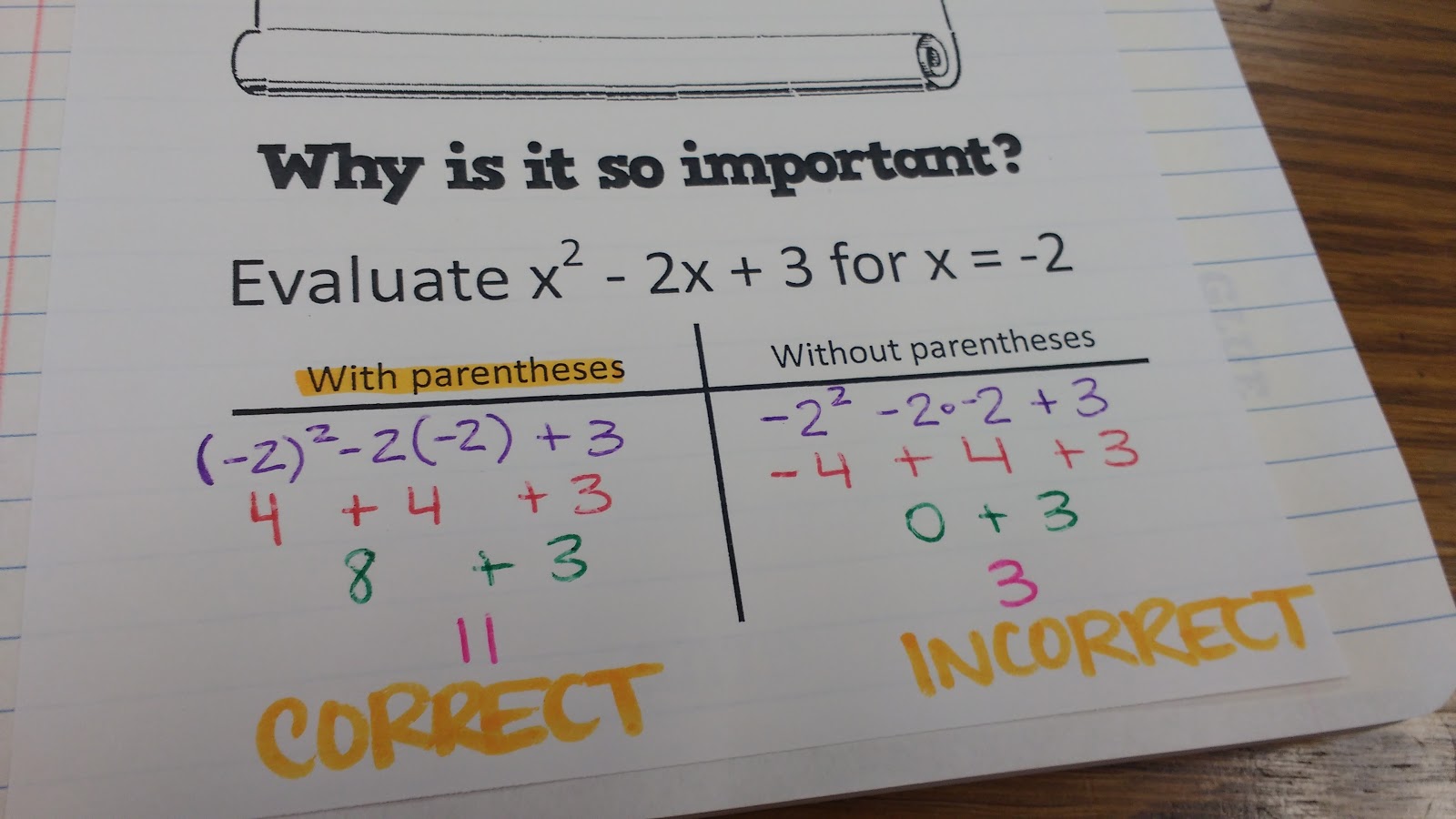
As a class, we worked out the same problem two ways: with parentheses and without parentheses. Look, we got two different answers! See, class, I told you that parentheses are important!
But, now we have two different answers. How do my students know that 3 really is the incorrect answer and 11 is the correct answer? Should they just blindly trust me with this too? To reassure my students that Mrs. Carter really does know what she is talking about, I had my class get out their calculators (TI-30XS) so that I could teach them a nifty calculator trick. I walked them through the steps of storing -2 for x in their calculators. Then, I challenged them each to type x^2 – 2x + 3 in their calculators. Every student in the class got their calculator to read 11. That means that when our calculators substitute in values for variables, they use parentheses, too! See, Mrs. Carter is telling the truth!

